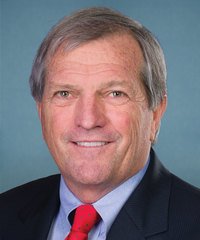
Congressman Mark DeSaulnier (DE-SOWN-YAY) proudly represents California’s 11th Congressional District, which includes the majority of Contra Costa County. For more than 30 years in public service and as a small business owner, Mark has been a leader for working families. During his time in U.S. House, most of which Republicans were in charge, Mark passed more than 60 legislative efforts. He is an effective legislator who knows how to get things done.
Mark is one of only a few Members of Congress to serve on four committees. He currently sits on the Committee on Transportation and Infrastructure, the Committee on Education and Labor, where he serves as Chairman of Subcommittee on Health, Employment, Labor, and Pensions (HELP), and the Committee on Oversight and Reform. He also is a Member of the House Committee on Rules, where he has the opportunity to weigh in on major pieces of legislation before they are brought to the House Floor and where he was chosen by his colleagues to serve as Vice Chair of the Committee. Mark is a member of the Congressional Progressive Caucus.
During a time of record-breaking income inequality and runaway corporate greed, restoring the balance of power in favor of the American worker is imperative. America's workforce is one of the best, most productive labor forces in the world. As a member of the House Committee on Education and Labor and a former small business owner, however, Congressman DeSaulnier has seen firsthand that workers are being taken advantage of by big business. As we grapple with the economic fallout of the coronavirus pandemic, Congressman DeSaulnier is committed to promoting policies that advance all workers and prepare them for the jobs of the future, provide support for owners of small businesses, and support our economy.
By the Numbers
Since 1973, wages have risen 10%, but productivity has increased by almost 74%.
Union members have 20% higher wages, more paid leave, are 28% more likely to have employer-sponsored health insurance, and have better access to pensions than their non-union counterparts.
Income inequality is at its highest point since before the start of the Great Depression.
Small business revenues dropped by 52% due to the pandemic, with nearly 100,000 establishments permanently closing
Things to Know
Working for You
Fighting to Return Power to Workers
Businesses are important economic drivers for our local communities – they provide jobs, contribute to the local tax base, and help create local supply chains – but they should not be treated with impunity. They need to take responsibility for the role they play in the lives of their workers and the local economy. Congressman DeSaulnier authored the Justice for Dislocated Workers Act (H.R. 8583), which would require corporations voluntarily closing or laying off workers to confront the real cost of their closure or relocation. If a corporation still chooses to leave or close, it would be required to pay into a fund to help financially support people who will lose their jobs and other businesses that may be affected by the closure.
Future of Work, Wages, and Labor
After launching the Future of Work, Wages, and Labor effort in March 2016, Congressman DeSaulnier and his partners in the initiative traveled more than 4,700 miles and held 9 public meetings; hosted town halls with over 250 local workers; consulted over 100 experts and academics; and ultimately developed over 30 policy recommendations. The result is a comprehensive guide to protecting workers in the jobs of today and preparing for the jobs of tomorrow.
Combating Inequality
Inequality within our society disadvantages low-income Americans both in and out of the workplace. To help address this issue, Congressman DeSaulnier introduced the CEO Accountability and Responsibility Act (H.R. 3633), which incentivizes companies to improve CEO-to-worker pay ratios.
Supporting Working Families
Congressman DeSaulnier sponsors several bills that help working families support their families financially and personally. Some of these measures incentivize access to child care, provide for more flexible and advanced schedules, and establish a minimum amount of family and sick leave.